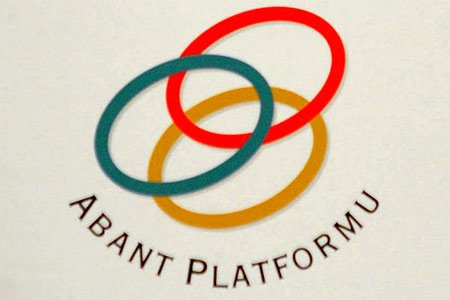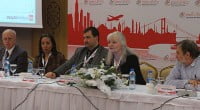The Gülen Movement in the public sphere

Date posted: November 3, 2007
ETGA UĞUR*
Religion is an important source of social capital in many modern societies.
Religion as a body of beliefs, values and norms motivates believers to volunteer in community affairs to provide social services such as health care, soup kitchens, education and helping the poor. Religion also provides a source of common identity to its followers and creates bonds between them. Obviously, religion is only one source of social capital or civic engagement, albeit an important one.
Social capital, or networks of civic engagement, is crucial to create a vibrant society with a meaningful dialogue among its constituents. Social capital can be understood at two separate but interrelated levels. One is the individual level pertaining to the degree to which individuals are “community minded” with a sense of the common good. The other level is more intersubjective and structural and relates to the absence or existence of trust between individuals in a society. In a way, volunteer organizations in civil society play an important role in transforming anonymous masses into communities and trust “lubricates” cooperation for mutual benefit. The Gülen movement is an Islamic social movement that bases its philosophy on increasing religious consciousness at the individual level and making Islam an important social force in the public sphere. It is this intellectual and social activism that raises the Gülen movement of Turkey as a global phenomenon to the focus of socio-political analysis.
The Abant Platform is a good example of a religiously inspired social capital formation in a society with ideological, ethnic and religious fault lines. This platform departs from a belief that religion, and particularly Islam, can be a positive factor in social, political and economic life. The Gülen movement has been quite successful in utilizing its cultural and human capital in order to empower the civil society and expand the democratic space available for the formally excluded periphery vis-à-vis the centre.
In many respects Abant is a unique enterprise. First, it is a genuine civil society initiative. It is “civil” as it does not have any links with any branches of the state apparatus. It also does not directly promote the economic or political interest of a group. This difference from an interest group is important to underline because it suggests a more civic and collective purpose to contribute to the public good as opposed to a particular understanding of public good from an economic, political or ideological perspective. Think tanks, business associations, labor unions, environmental groups and even human rights advocates are examples of interest groups that are formed by like-minded individuals with very particular goals. The Abant Platform is primarily supported by the Gülen movement, yet its mission statement points to the interest of the society as a whole. This is in fact no more than logistical and moral support. However, this does not mean that the movement gains nothing out of this leadership in the end. If you ask the activists in the executive committee, they will stress that a society in peace and harmony is in the interest of everyone, including the members of the Gülen movement.
Another unique feature of the Abant initiative is its religious-based inspiration and motivation. The Gülen movement is not exceptional in forming civil society organizations and using religion as a source of social capital. However, other religious groups mainly offer social services, such as health care, private education and food and clothing for the needy. When it comes to public policy, most religious groups act as an interest group. In other words, they take open positions in moral issues, such as social justice, war, abortion and drugs, among others. Many Christian churches participate in the democratic process, even hire registered lobbyists. Even if they form coalitions, they still retain their positions as a distinct group.
The Gülen movement, in contrast, does not openly take position on many issues, including the much debated headscarf question in Turkey. Rather, the movement takes a more indirect way to influencing public opinion. Promoting platforms where different groups in society, including people who are not religious or are atheists, is an outcome of this indirect approach. In a way, the Abant Platform not only consumes the existing social capital by bonding (within the Gülen movement fellowship), but also creates more social capital by bridging (across different groups). One needs to take into account the influence of the political culture in shaping such an approach. Unlike the liberal pluralist political culture in the US, for historical reasons Turkey is closer to the republican tradition that emphasizes the “general will” and public order over the public sphere that legitimizes inclusion of particular moral, philosophical and ideological values. As we mentioned in the previous section, the Gülen movement uses a national (interest) based rhetoric, and this becomes the basis for their legitimacy in the Turkish public sphere. A critical contribution of Abant in Turkey is the empowerment of the civil society vis-à-vis the state. The success of Abant depends on two factors: its continued commitment to the democratic process (without getting entangled in everyday politics) and its faith in the power of civil society. As a result of the public deliberations about various aspects of social problems, a more informed, educated and cohesive public has already started to emerge, which has in turn developed self-esteem to challenge the state in matters of democracy, freedoms and the rule of law. The open dialogue and reconciliation that take place in Abant demystify social problems that were seen as intractable. This in turn depoliticizes social problems. And paradoxically, depoliticisation opens more space for the political society against the resentment of the state bureaucracy to reform.
A civil society mindful of its interest in balancing the coercive power of the state and a political society that can transmit the societal preferences into policy and legislation are two indispensable elements of a functioning democracy.
*Etga Uğur is a Ph.D. candidate at the University of Utah.
Source: Today's Zaman , November 2, 2007
Tags: Abant platform | Dialogue | Fethullah Gulen |
























